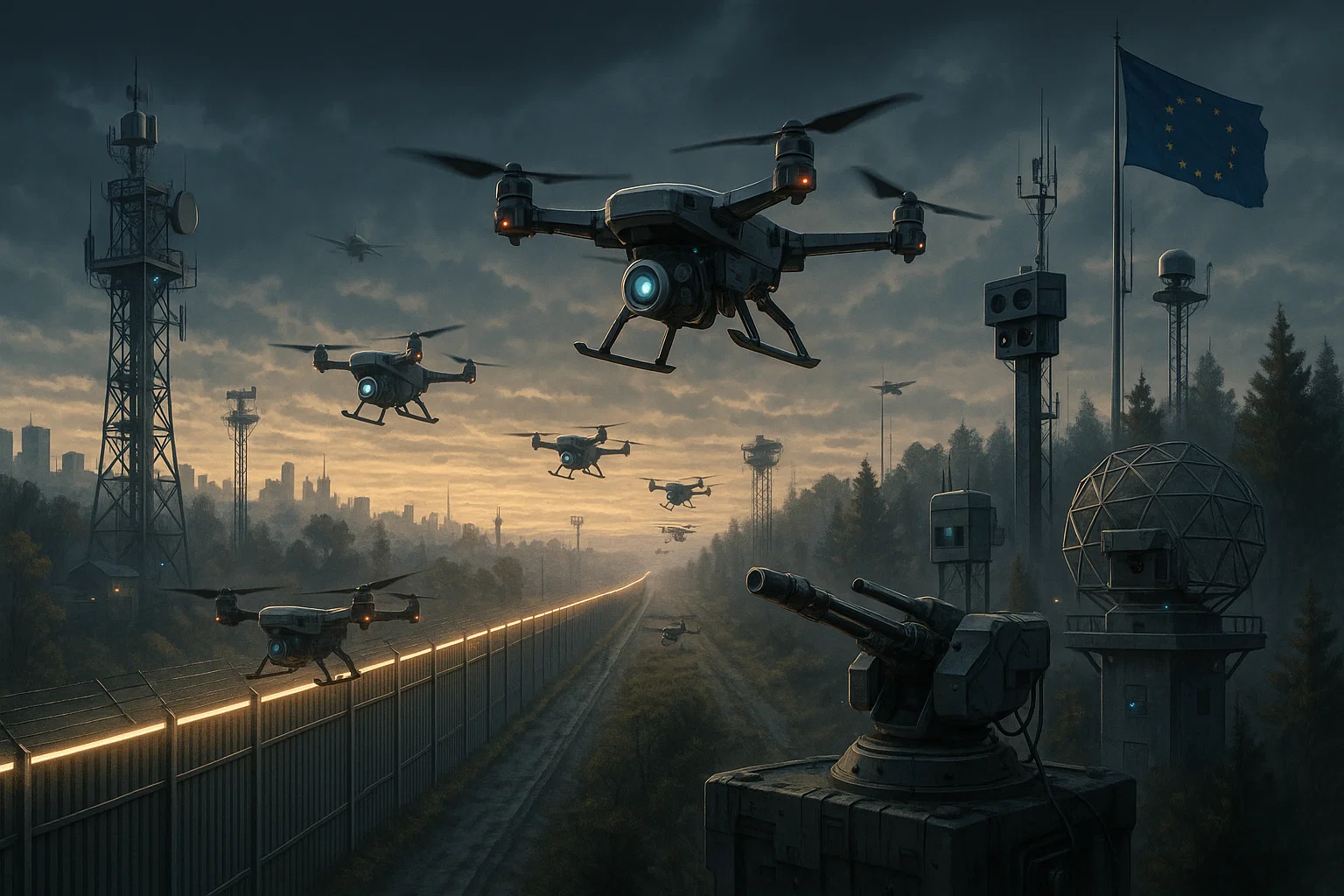Russia’s drone incursions in Poland and Denmark in the past few weeks have raised alarms all across Europe, and now several nations on the continent are mulling over a ‘drone wall’ project.
On Thursday, Lithuanian President Gitanas Nauseda asked the United Kingdom to join the ‘drone wall’ project and called it an ambitious yet necessary move for protection against the rising drone threats.
The remarks highlight the shifting security architecture in Europe, with nations openly calling out Russia’s hostility and even taking concrete steps to project themselves.
What is the ‘drone wall’ project?
The ‘drone wall’ project is a coordinated security initiative launched by several European countries to strengthen border defenses along the EU’s eastern frontier.
The project aims to deploy advanced unmanned aerial systems, drones, alongside surveillance technology to monitor, deter, and intercept potential threats from neighboring states, particularly Russia and Belarus.
By integrating drones with existing border infrastructure, European nations hope to create a continuous, high-tech barrier that enhances real-time situational awareness and response capabilities, while reflecting growing concerns over airspace incursions and hybrid warfare tactics.
Proposed as a high-tech shield for the EU’s eastern flank, the initiative involves coordinated systems integrating radar, cameras, radio frequency detectors, jammers, and acoustic sensors, often using artificial intelligence to automate drone recognition and interception.
The goal is to create a unified European network for real-time detection, tracking, and neutralization of hostile unmanned aircraft at a manageable cost compared to traditional air defense systems, leveraging Ukrainian expertise and NATO collaboration.
Why are European nations asking the UK to join?
At the European Political Community (EPC) summit in Copenhagen, President Gitanas Nauseda pointed out that the recent drone activity in Denmark displays that the nations without a direct border with Russia are also vulnerable.
The ‘drone wall’ project is particularly pushed by the European nations, who directly face the brunt of Russia’s misadventures in the region.
But, roping in nations like the UK and Denmark will send a louder message about the unity of the continent against Russia’s manoeuvres.
Such collaboration demonstrates Europe’s resolve to collectively safeguard its airspace, strengthen rapid information sharing, and pool technical resources for effective detection and interdiction systems.
Ultimately, a pan-European approach heightens deterrence, complicates Russia’s strategic calculus, and ensures the continent’s sky defenses are credible, responsive, and future-ready.
Moreover, the reports suggest that the ‘done wall’ project is expected to cost anywhere between €3 billion and €7 billion over the next four years, including expenses for detection systems, mobile response units, and interceptors.
Enlisting developed nations as partners like the UK not only strengthens security but also shares the financial burden, sending a united political and economic message to Russia.
The post Why are European nations asking the UK to join their ‘drone wall’ project? appeared first on Invezz

